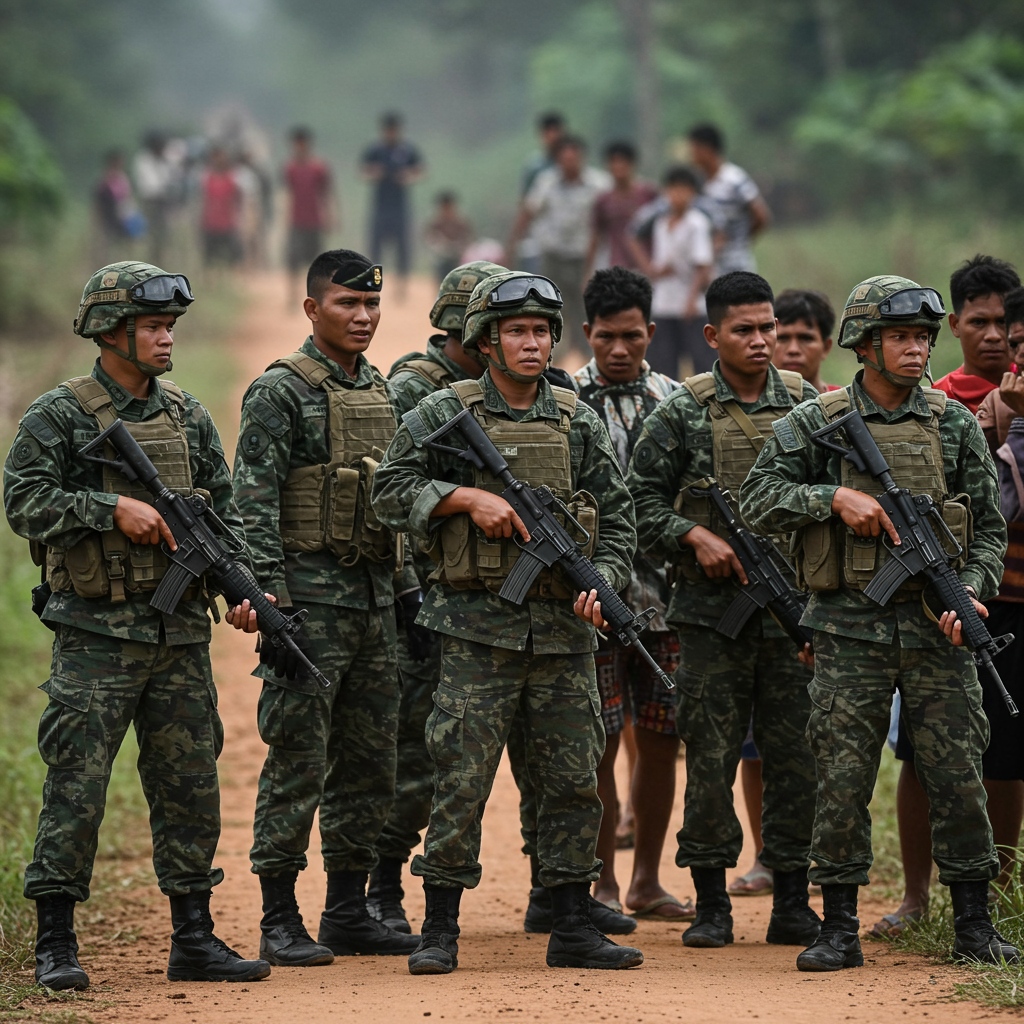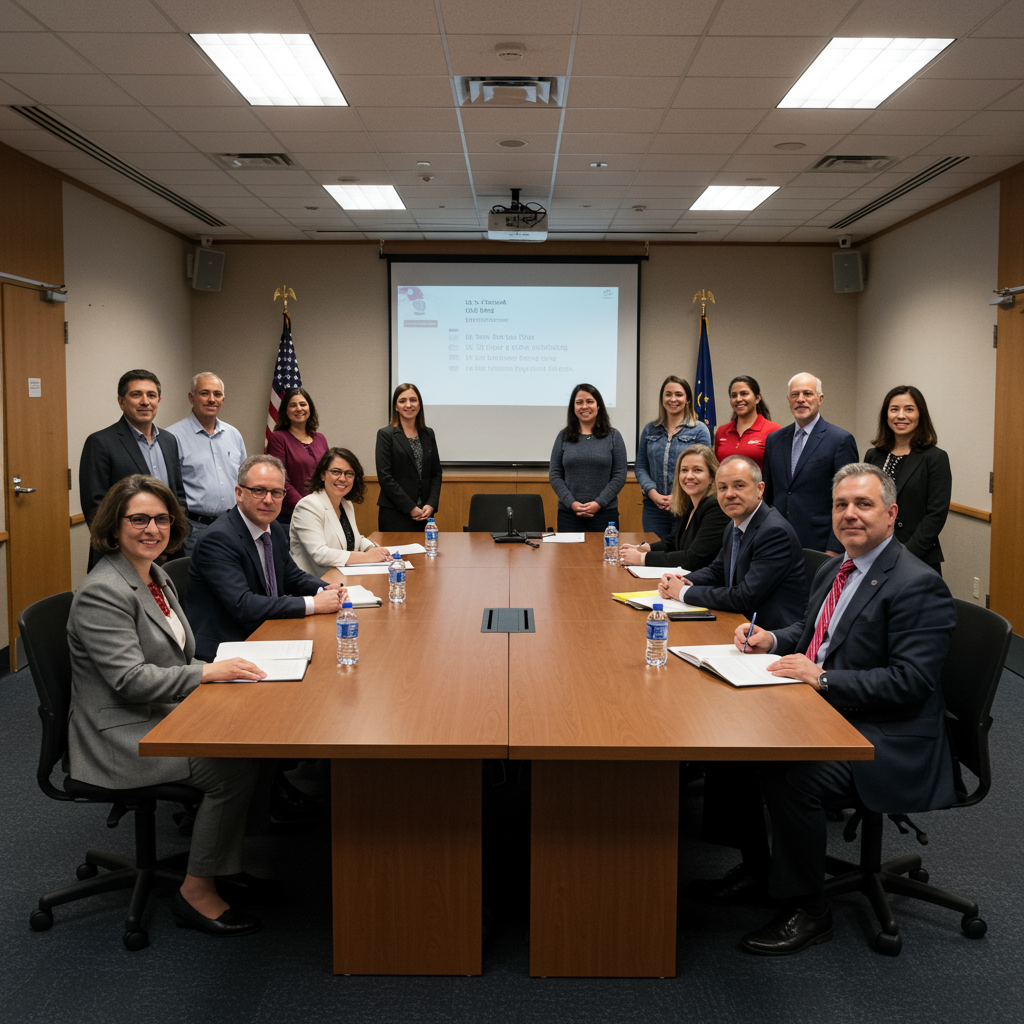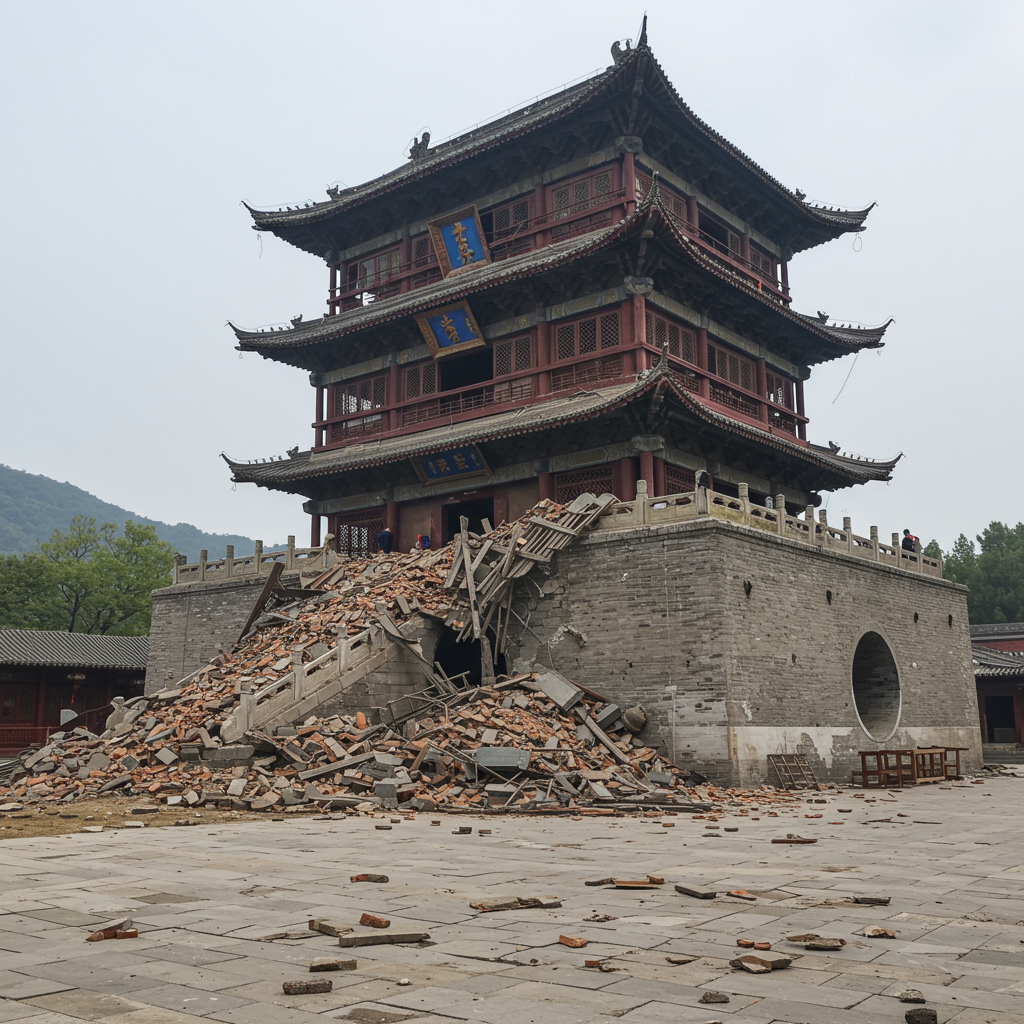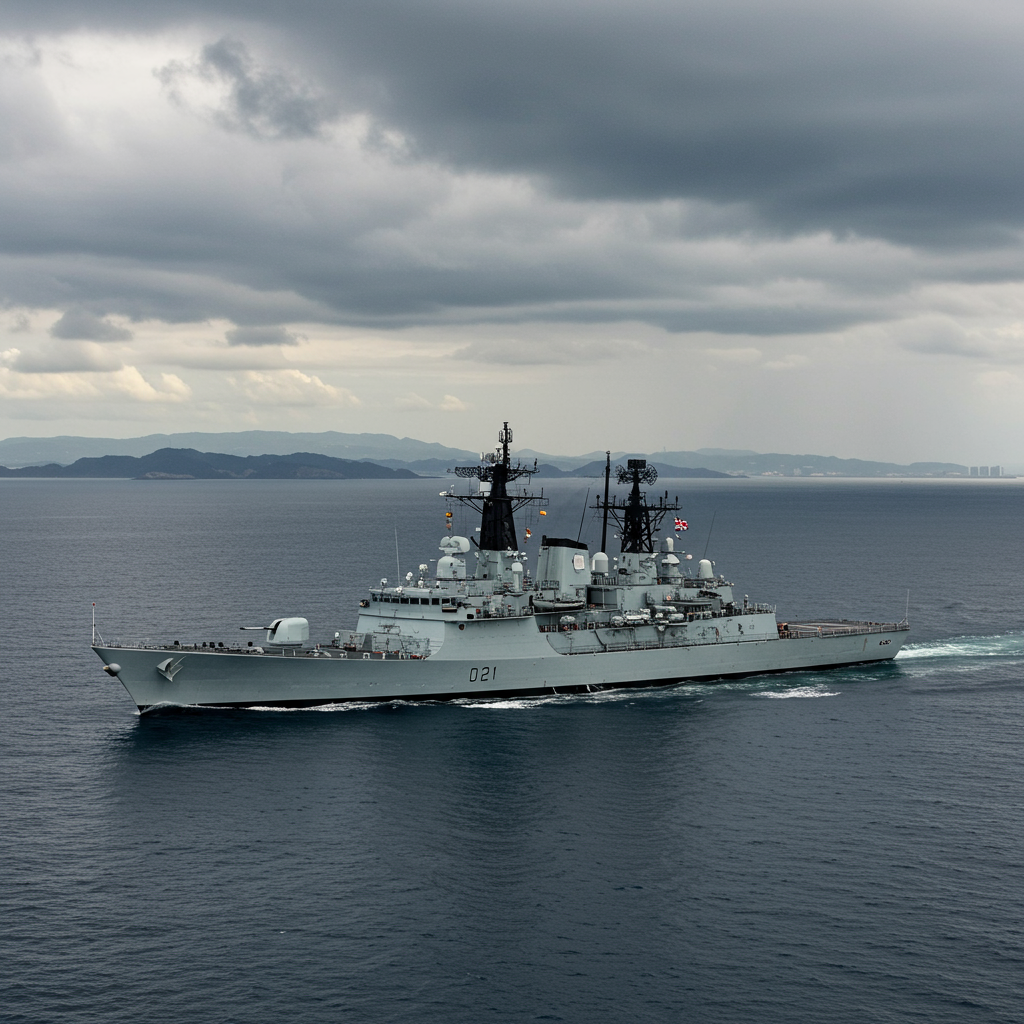Southeast Asia faces a grave new crisis as the long-simmering border dispute between Thailand and Cambodia intensifies, with Thai officials warning of a potential “move towards war.” Recent clashes have claimed at least 16 lives, including civilians on both sides, and displaced tens of thousands, prompting urgent international appeals for an immediate ceasefire. This escalating violence highlights deep historical grievances and the fragile peace in a vital region.
The latest escalation, marked by the use of heavy weaponry and spread across at least 12 border locations, has shocked communities. Acting Prime Minister Phumtham Wechayachai of Thailand has underscored the severity, while his nation accuses Cambodia of firing into civilian areas, leading to mass evacuations. Conversely, Cambodia has accused Thailand of deploying banned cluster munitions, a claim Thailand has yet to address.
A Century-Old Dispute Ignites New Conflict
The roots of the Thailand Cambodia conflict stretch back over a hundred years to the drawing of borders after the French occupation of Cambodia. This historical border dispute has led to sporadic but often deadly clashes. Tensions significantly ramped up in May after a Cambodian soldier was killed, pushing bilateral ties to their lowest point in over a decade.
The immediate spark for the latest hostilities on Thursday remains disputed. Thailand alleges Cambodian military drones initiated surveillance of Thai troops near the border. Cambodia, however, counters that Thai soldiers violated a prior agreement by advancing on a Khmer-Hindu temple. These accusations underscore the deep distrust fueling the ongoing violence. Both countries claim self-defense as their forces engage in heavy artillery and rocket exchanges. Flashpoints include areas near the ancient Ta Muen Thom and Preah Vihear temples, sites of past contention.
Devastating Human Cost and Widespread Displacement
The human toll of the Thailand Cambodia conflict is rapidly mounting. Thai authorities report 14 civilians and one soldier killed, alongside dozens injured. In Cambodia’s Oddar Meanchey province, at least one civilian has died. The humanitarian crisis is profound. Over 140,000 Thai civilians, predominantly from Surin province, have been urgently evacuated or displaced. Meanwhile, approximately 1,500 Cambodian families from Oddar Meanchey have also sought safety.
Evacuation centers in Thailand’s Surin province are sheltering countless individuals, many of them children and the elderly, all deeply shaken by the relentless rocket and artillery attacks. Older evacuees, who endured the Cambodian Civil War of the 1980s, describe the current fighting as even more intense. This necessitates moving much farther from the border than in previous evacuations. In deserted villages, a few older men remain to guard homes and livestock, huddling in improvised shelters built from concrete pipes and sandbags, highlighting the desperate measures taken by those caught in the crossfire. Daily life across the entire border region has ground to a halt.
International Community Calls for De-escalation
Global leaders have reacted with grave concern to the escalating Thailand Cambodia conflict. The United States has urged an “immediate cessation of hostilities, protection of civilians, and a peaceful resolution,” lamenting the harm to innocent civilians. China, which holds significant political and strategic ties with both nations, has expressed “deep concern” and called for resolution through dialogue. Beijing has also offered to play a constructive role, attributing the border clash to the “legacy of western colonizers.”
Australia, the European Union, and France have also appealed for peace. The United Nations Security Council convened an emergency meeting to address the crisis following a letter from Cambodian Prime Minister Hun Manet, who urged intervention to “stop Thailand’s aggression.”
Despite these international appeals for mediation, Thailand’s foreign minister has asserted there is “no need” for third-party involvement. Bangkok insists the situation must be resolved bilaterally and demands Phnom Penh cease its offensive moves. This stance contrasts with Malaysian Prime Minister Anwar Ibrahim’s offer, as ASEAN Chair, to facilitate talks. Anwar had previously welcomed “positive signals” from both sides towards a mediated path. This divergence highlights a key challenge in de-escalating the crisis.
Geopolitical and Economic Implications
The ongoing Thailand Cambodia conflict carries significant geopolitical implications, with both the U.S. and China vying for influence in Southeast Asia. While both global powers maintain relations with Thailand and Cambodia, China has cultivated particularly close ties with Cambodia, notably securing access to a naval base on the Gulf of Thailand. Conversely, Thailand is a major non-NATO ally of the U.S. This complex web of alliances adds a layer of caution to international intervention.
A prolonged conflict also poses substantial economic challenges for both nations. Thailand, heavily reliant on exports and tourism, faces strong incentives for a swift resolution. Analysts anticipate de-escalation given rising external risks and the potential for derailing already weak tourism and growth figures. Cambodia’s economic growth was already projected to slow, and its high dependence on U.S. exports makes it particularly vulnerable. The conflict has also impacted Cambodian migrant workers in Thailand, with thousands reportedly gathering to return home.
Domestically, the crisis presents fresh challenges for Thailand’s leader, Paetongtarn Shinawatra, whose ruling coalition faces instability. Nationalist sentiments are running high, with social media posts supporting the Thai military trending. While analysts note Thailand’s considerable military advantage in a full-scale war, the mounting pressure on political and military leaders suggests that restraint may become difficult to maintain.
Frequently Asked Questions
What are the primary reasons behind the escalating Thailand-Cambodia border conflict?
The conflict stems from a century-old border dispute originating from French colonial-era frontier drawings that Thailand has consistently refused to accept. Recent triggers include a skirmish in May that killed a Cambodian soldier, which plunged bilateral ties to their lowest point in over a decade. Additionally, both nations accuse each other of initiating the latest hostilities, with claims ranging from drone surveillance to violations of temple agreements.
Which international bodies and nations are calling for de-escalation?
Numerous international actors are urging an immediate cessation of hostilities. These include the United States, China, Australia, the European Union, and France. The United Nations Security Council held an emergency meeting on the issue following an appeal from Cambodia. Malaysian Prime Minister Anwar Ibrahim, as Chair of ASEAN, also offered to facilitate talks. However, Thailand has indicated a preference for resolving the dispute through bilateral means.
What are the immediate humanitarian and economic impacts of the border clashes?
The immediate impacts are severe. At least 16 people have died, including civilians on both sides, and dozens are injured. Over 140,000 Thai civilians and 1,500 Cambodian families have been displaced, seeking shelter in evacuation centers. Economically, a prolonged conflict could severely impact both nations, particularly Thailand’s crucial tourism and export sectors. Cambodia, highly dependent on U.S. exports, is also vulnerable, and many Cambodian migrant workers in Thailand are now returning home.
Looking Ahead: A Path to Peace?
The Thailand Cambodia conflict remains volatile. While international appeals for de-escalation are strong, Thailand’s rejection of third-party mediation suggests a preference for direct bilateral resolution, which has proven difficult in the past. The historical grievances, combined with current accusations and the severe human and economic toll, demand urgent and sustained diplomatic efforts. The world watches closely to see if dialogue can prevail over the drums of war in this critical Southeast Asian border region.




